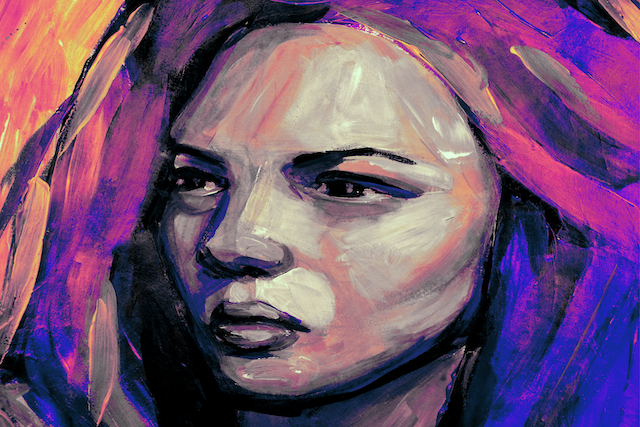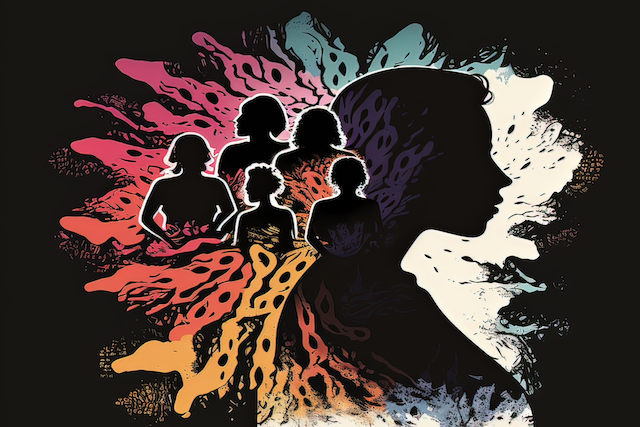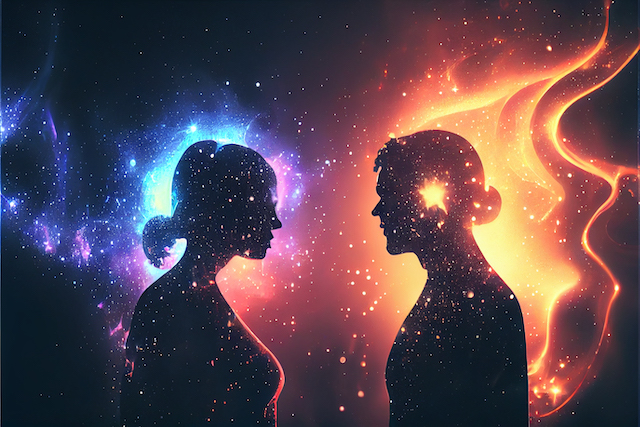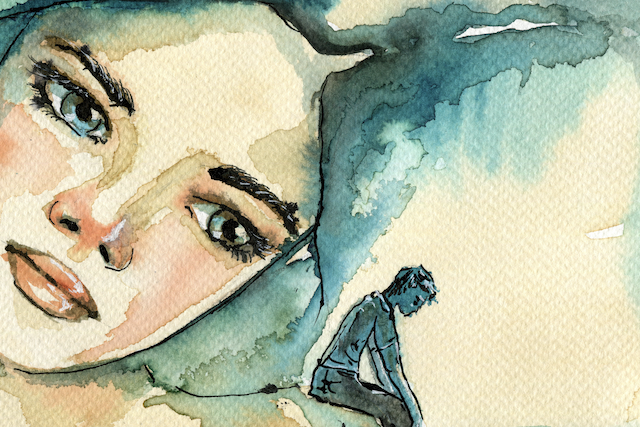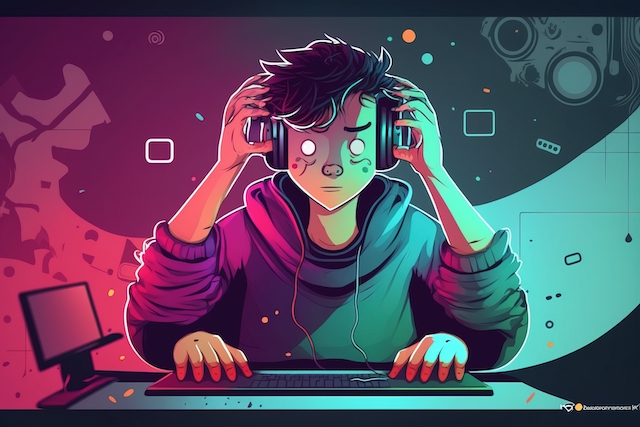
“The ego desperately wants safety. The soul wants to live. The truth is, we cannot lead a real life without risk. We do not develop depth without pain.” ~Carol S. Pearson
Workaholism is the body’s wisdom in action, literally.
Some people develop workaholic tendencies because they crave to be seen as the best through their accomplishments.
But I’m not here to talk about people who’re obsessed over their image.
The particular strain of “workaholism” that isn’t talked about enough is a perfectionist’s addiction to productivity.
It has little to do with being recognized for your brilliance or achievements in the outer world, and much more to do with your own unattainably high standards for yourself and others.
It’s not about winning a shiny trophy at the end of the day so everyone will know you’re the real deal, but knowing that you’ve improved yourself, others, or the environment around you–even if it’s just neurotically reorganizing your closet.
It’s knowing that you made the world a better place and that you didn’t cut any corners to get there.
Whether it’s your career, community projects, or personal to-do lists that consume your everyday life, your addiction to activity is problematic for many reasons. Once you get a dose of completing a job, an impulsive urge to drown yourself in more activity immediately creeps in. Without it, you experience a profound sense of worthlessness.
You struggle with accepting your work as it is, and your inner critic never settles for okay enough.
This kind of “improvement” workaholism is about self-worth and a felt sense of safety. Because idleness feels unsafe in the body of a workaholic, non-activity is misconstrued as uselessness, which feels like a gaping hole in your beingness. The wisdom of a workaholic’s body knows that not creating, producing, or improving oneself or the environment is on par with being an unlovable sack of garbage.
So your body keeps you busy.
Addiction to activity shows up in myriad ways. Doing your coworker’s job for them because they’re not meeting your standards. Working long hours to perfect a project that you logically know doesn’t need to be perfect. Cleaning the house when it’s not dirty. Pouring more energy than is necessary into helping your kids with their homework. An inability to rest, relax, or experience pleasure unless it’s “earned”–and even then, it’s a fleeting and rare occurrence.
When the Body Goes to War
My workaholic perfectionism took a toll on my body starting in my mid-twenties. It’s common for people fixated on perfectionism and activity to chronically hold tension in their bodies. I was so armored in my muscles that I injured my neck from stiffness, leading to some of the worst pain I’ve ever had.
I was living in rural Japan at the time. Desperate for help, I drove forty-five minutes through snowy conditions down a country road to see specialists who spoke no English, and to this day I have no idea what their area of specialty is called–I’ve never seen it anywhere else. But they treated me in their home on a regular basis to bring me the relief I needed to keep my sanity.
And that was just the beginning.
From that point onward, I continued to injure my neck several times a year. After returning to the U.S., I saw chiropractors, physical therapists, and massage therapists on a recurring basis. They certainly treated my symptoms, but I didn’t understand why I was so chronically rigid and injury-prone.
And then came the injury that changed the course of my life.
In my early thirties, I developed tendonitis and a repetitive motion injury in my right arm from using the computer in my office job. I worked hard, perfecting every task, email, and spreadsheet that came across my desk. I continued to hold tension in my body, and I rarely took breaks. Desperate to keep working despite the pain in my right arm, I compensated with my left arm and injured it too.
Different parts of my body were at war with each other–one part guilting me to stay in the hustle cycle, another part sending smoke signals to get me to slow down and rest.
I ended up on disability for eight months.
I struggled to take care of myself. Bathing, cooking, cleaning, and doing laundry were no longer feasible. I could not hold open a book to read. It took months to be able to return to normal activities. For someone who’s historically been addicted to staying busy, it was a nightmare to not be able to work per doctor’s orders.
Two years later, my doctors agreed that I have a permanent partial disability. I am no longer able to work in any eight-hour desk job. A throbbing hand reminds me when it’s time to rest, and now I know to listen.
Sprinkled through my late twenties and early thirties I also experienced episodes of suicidal ideation and general depressive states. I felt profoundly worthless even though I had my dream job in a beautiful coastal town of California.
My monkey mind was full of chatter. I fixated on how to feel better, but I was just clinging to the same old habits of endless mental and physical activity.
Through that difficult passage of time, I believe my psyche was taking me down the dark path of individuation, the transformative process of integrating one’s unconscious and conscious mind-body.
It’s everyone’s birthright to return to wholeness—a magical reunion of parts that were separated and abandoned in the process of childhood. I discovered that I had banished lazy self-indulgence deep into my shadow.
Jungian depth psychology and pole dancing opened me up. I healed through embodied sensual movement, accessing my creative inner guidance, making time for spontaneous play with no agenda, and finding peace in my deep stillness.
Today I move with ease in my body. I find pleasure in places where I could not before. I know how to be in my deep stillness, and I have what feels like true, sustainable joy.
It doesn’t mean I never slip into old habits. In fact, I still find new iterations of old patterns as I move through life, but I know how to work through them. It’s become my superpower.
The Unconscious Driver in Your Mind and Body
Often, we glorify hard work, refusing to admit the destruction it does to our minds and body when it’s become a habit.
Many workaholics see their patterns as justified, always armed with a list of reasons why they must deliver the much-needed improvement or task despite the obvious sacrifices being made. They do not respond well to being told that they need to slow down or prioritize their well-being.
Best case scenario, they agree that they work too hard but don’t know how to be any other way.
If this resonates, maybe you beat yourself up for not being more present with yourself or your loved ones. And maybe you have a tendency to be your own worst critic due to your sky-high internal standards, so you’re particularly sensitive to critical feedback from others.
The good news is that there’s nothing “wrong” with you. You’re not a bad person because you’re too busy to show up for others. You’re not a self-sabotaging idiot because you worked so hard that you injured yourself. You’re not broken because you can’t sit still.
Just like any other addiction, workaholism is a coping strategy.
Workaholism is a learned behavior that serves to protect you from feeling the pain and discomfort of being completely tuned in to your deep stillness without the activity. A work-oriented perfectionist unconsciously harbors a belief that they’re unworthy unless they’re busy fixing themselves or the world.
Your workaholic tendencies have an incredible intelligence. Your body is brilliant, much more than your conscious mind and ego-persona, which think they know better. But they’re vastly mistaken.
Five percent of your cognitive activity is conscious and the other 95 percent is unconscious.
The 95 percent largely drives your actions, non-actions, urges, and beliefs. Your endless activity isn’t coming from your conscious thinking mind. You might be convinced that your sheer willpower and self-discipline are the reasons you’re so productive. But that’s simply not the case. You’re the result of unconscious conditioned patterns that influence your behavior in the world.
If that isn’t humbling, then I don’t know what is.
The urge to work longer and harder than is good for you is a felt sense in your body. Your impulses—if you pay really close attention—are a reaction to not wanting to feel a certain way. Ultimately, it’s to avoid the discomfort of being fully present to your perceived worthlessness in the midst of being idle, non-productive, and undisciplined.
It’s so sneaky that you often never feel the first dose of discomfort because your body is so well programmed to keep you busy that it knows exactly how to keep you from feeling like a useless waste of space.
Your body in its wholeness is so much smarter than your tiny fraction of conscious thoughts.
It’s not your fault that you’ve never learned how to be any other way. It’s not your fault that most therapists, mentors, educators, and caregivers have no clue how to actually help you change your patterns.
The great news is that you can change. Your mind-body is not permanently wired this way.
Science and many different proven techniques tell us how we can change ourselves in ways that seem unimaginable. Unfortunately, these methods lag behind in formal education and the knowledge base of many healers. But, there are many entry points to working with your mind and body to transform how you show up.
Mind-Body Practice
While it’s not your fault that you’ve been conditioned to stay perpetually busy, it is your responsibility to do the inner work if you want to enjoy life as your best self who doesn’t need to work to feel worthy.
If you have a conditioned tendency to avoid stillness because your body misconstrues it as dangerous, then you have to prove to yourself that endless activity is not the way to live fully in your pleasure, presence, and peace.
Partner with your body and get lovingly curious about yourself.
The precise activity that you avoid most, idleness, is one way to get acquainted with your inherent, non-negotiable worthiness. This will inevitably dredge up anxiety, depression, and other uncomfortable feelings.
Learn to be in touch with what you’re feeling in your body, known as interoception. This alone is a practice that will pay you back tenfold in overall well-being, decision-making, and trusting your inner guidance.
Observe where you’re holding any physical tension. Pay attention to places where discomfort begins to stir and notice what your first impulse is. Often, the urges that arise have a positive intention of squashing the discomfort. For someone with workaholism, that urge is productive activity.
The body is excellent at reacting at warp speed to these signs of discomfort. Notice where the unease is showing up in your body and develop a practice of sitting with it–another practice that’s worth learning if you want to take the risk of being a human in a world of uncertainties. The treasures of life are found in the unknown.
Over time, you will learn when your activity is exiting the healthy, productive realm and entering the unhealthy, self-sacrificing realm–so you can intervene.
You’re incredibly capable of healing and changing your life. You’re not broken, no matter what your struggles are. Trust me, every practice I preach is one that I’ve used to transform my own life.
Remember that you’re a beautiful creature who’s learning to exist exactly as you are—magnificent, perfect, and worthy.

Krissy Loveman is a Life Coach and S Factor Feminine Movement Instructor. Learn more about Krissy at krissyloveman.com. Follow her on Instagram @krissy.loveman.
Feminine Movement Instructor. Learn more about Krissy at krissyloveman.com. Follow her on Instagram @krissy.loveman.
Get in the conversation! Click here to leave a comment on the site.
The post Workaholics: Why Staying Busy Feels Safe and How It Takes a Toll appeared first on Tiny Buddha.
from Tiny Buddha https://ift.tt/Js1oSPd

![]()

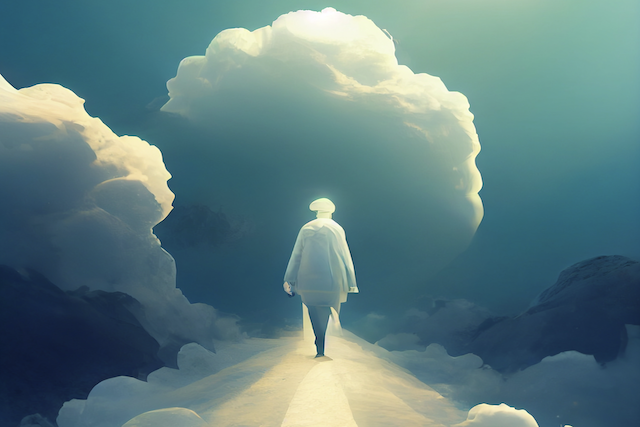
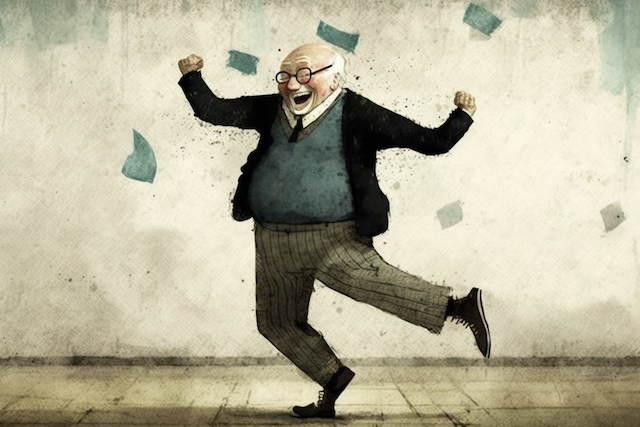


 Feminine Movement Instructor. Learn more about Krissy at
Feminine Movement Instructor. Learn more about Krissy at 